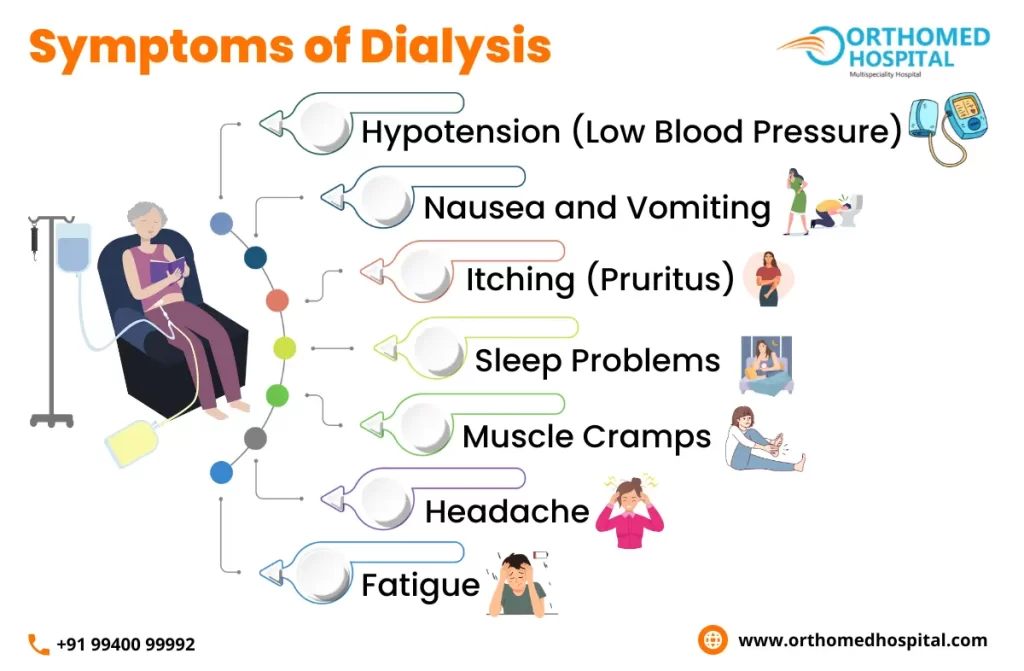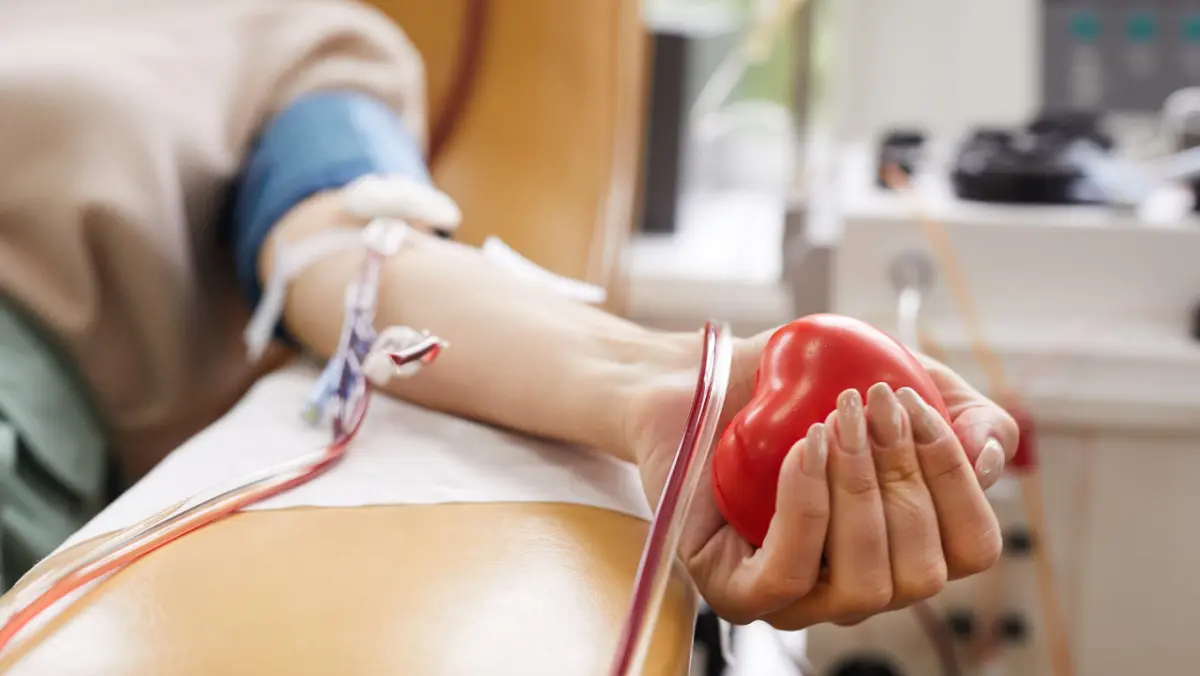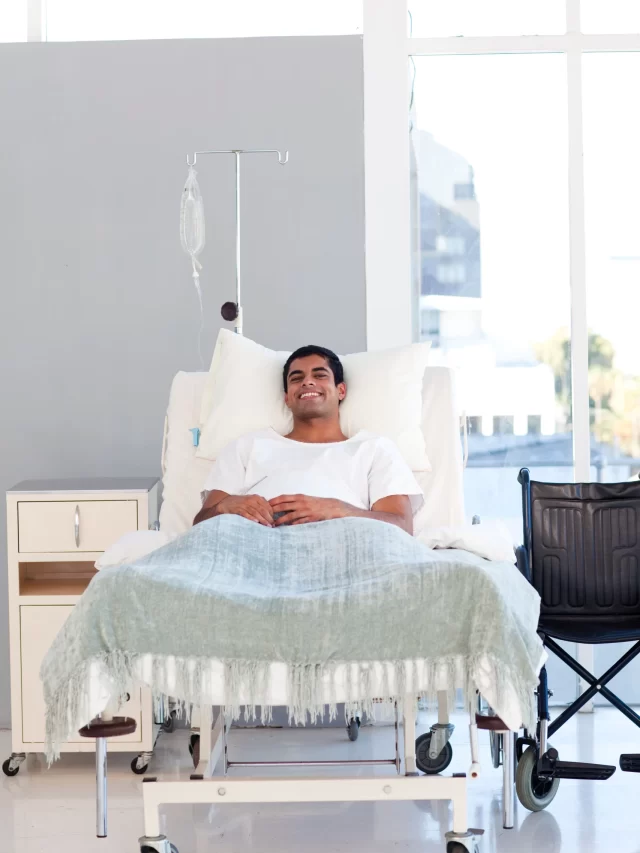At Orthomed Hospital, we are dedicated to providing exceptional healthcare services to our patients, and our state-of-the-art dialysis facility is no exception. With a team of highly skilled and compassionate professionals, advanced technology, and a patient-centric approach in this best dialysis hospital in Chennai, we aim to deliver the best possible care for individuals with kidney-related conditions.
Introduction to Orthomed Hospital’s Dialysis Facility
The dialysis facility in this dialysis hospital is a specialized unit designed to cater to patients with kidney diseases and renal failure. Our facility is equipped with cutting-edge technology and staffed by experienced nephrologists, nurses, and technicians who work tirelessly to improve patient’s quality of life. We understand the challenges faced by individuals with kidney problems and strive to provide them with a comfortable and supportive environment during their dialysis sessions.

State-of-the-Art Technology
At this best dialysis hospital in Chennai, we are committed to investing in the latest medical advancements to ensure optimal patient outcomes. Our dialysis facility features modern dialysis machines that are efficient, reliable, and easy to use.
These machines are equipped with advanced safety features and computerized controls to ensure accurate and precise treatment delivery. With the integration of innovative technology, we can closely monitor patients’ progress, track vital signs, and make necessary adjustments during the dialysis process.
Highly Skilled and Compassionate Staff
Our team at this best dialysis hospital in Chennai comprises highly qualified and compassionate professionals who have extensive experience in managing kidney-related conditions. Led by expert nephrologists, our healthcare staff is dedicated to providing personalized care to each patient. Our nurses and technicians are trained in the latest dialysis techniques and prioritize patient comfort and safety at all times.
We understand that coping with kidney diseases can be challenging, and our staff is committed to providing emotional support and empathy to patients and their families throughout their treatment journey.
Patient-Centric Approach
At Orthomed Hospital, we firmly believe that patient satisfaction and well-being are the cornerstones of quality healthcare. Our dialysis facility follows a patient-centric approach, where we tailor treatment plans to meet the unique needs of each individual at a reasonable dialysis cost Chennai.
We involve patients in their care decisions and encourage open communication to address any concerns they may have. Our team takes the time to educate patients about their condition, treatment options, and lifestyle modifications to empower them to actively participate in managing their health.
Comprehensive Services of Dialysis Hospital in Chennai
The dialysis facility at this best dialysis hospital in Chennai offers a wide range of services to cater to different types of kidney diseases and patient requirements. Our services include:
- Hemodialysis: Our facility provides hemodialysis, the most common form of dialysis, which involves filtering the blood using a dialyzer to remove waste products and excess fluids.
- Peritoneal Dialysis: For suitable patients, we offer peritoneal dialysis, where the abdomen is filled with a dialysis solution to cleanse the blood by utilizing the peritoneal membrane.
- Continuous Renal Replacement Therapy (CRRT): CRRT is available for critically ill patients who require continuous dialysis to manage fluid and electrolyte imbalances.
- Home Dialysis Training: We provide training and support for eligible patients who wish to undergo dialysis in the comfort of their homes.
- Vascular Access Management: Our skilled team ensures proper care and maintenance of vascular access points, such as fistulas and grafts, to optimize dialysis treatments making the dialysis cost Chennai highly affordable.
- Nutritional Counseling: We have dedicated dietitians who offer personalized nutritional counseling to help patients make appropriate dietary choices for their kidney health.
Commitment to Safety and Infection Control
At Orthomed Hospital, we uphold the highest standards of safety and infection control in our dialysis facility. We strictly adhere to protocols to prevent the spread of infections and maintain a clean and sterile environment. Our staff is well-trained in infection control measures, and we regularly audit our processes to ensure compliance with industry guidelines and best practices.
Continuum of Care
At the best dialysis hospital in Chennai, we are committed to patient care that extends beyond the dialysis facility. We provide a seamless continuum of care by collaborating with other departments and specialists within the hospital. Our interdisciplinary approach ensures that patients with complex medical needs receive comprehensive and coordinated treatment.
Support Services
We understand that kidney diseases not only affect physical health but can also have emotional and psychological impacts. Our dialysis facility offers support services, including counseling and support groups, to address the emotional well-being of our patients and their families at an affordable dialysis cost Chennai.
Community Engagement and Education
At Orthomed Hospital, we believe in promoting kidney health awareness within the community. Our dialysis facility actively participates in community engagement programs and conducts educational sessions on kidney health, risk factors, and preventive measures.
Types of dialysis
There are two main types of dialysis used to treat kidney failure:
Haemodialysis
- In-centre haemodialysis: Performed at a dialysis center, usually three times a week.
- Home hemodialysis: Performed at home, allowing for more frequent sessions.
Peritoneal dialysis
- Continuous ambulatory peritoneal dialysis (CAPD): Performed manually several times a day.
- Automated peritoneal dialysis (APD): Uses a machine to perform exchanges, often overnight.
The choice between haemodialysis and peritoneal dialysis depends on individual health, lifestyle and preferences.
How to prepare for nephrology treatment
Preparing for nephrology treatment involves several steps. Before appointments, organize your medical records, including test results and a list of current medications. Be prepared to discuss symptoms and any changes in your health. Keep a record of fluid intake, blood pressure readings and weight changes. Wear loose, comfortable clothing for tests.
If on dialysis, follow prescribed dietary and fluid restrictions. Bring a list of questions to ask the nephrologist. Inform the nephrologist of any allergies or adverse reactions to medication. Finally, make sure you have transport arrangements for aftercare. Proactive preparation increases the effectiveness of nephrology care and promotes open communication with healthcare providers.
FAQs
Which dialysis is permanent?
Dialysis is typically not considered a permanent solution for kidney failure. It is a life-sustaining treatment that helps filter waste and excess fluids from the blood when the kidneys are no longer functioning adequately. There exist two primary forms of dialysis:
Hemodialysis: This involves using a machine to filter the blood through a dialyzer (artificial kidney) to remove waste and excess fluids. Hemodialysis is typically performed three times a week, and each session lasts for a few hours. It is a long-term treatment option, but it is not permanent. Patients often require ongoing dialysis or a kidney transplant for continued survival.
Peritoneal Dialysis: This method uses the peritoneum (lining of the abdominal cavity) as a natural filter. A special solution is introduced into the abdominal cavity, and waste products and excess fluids pass from the blood vessels into the peritoneal space, where they are then drained out. Peritoneal dialysis can be performed at home, providing more flexibility for some patients, but it is also a long-term treatment, not a permanent solution.
Can kidney be better after dialysis?
Dialysis itself does not improve kidney function. Instead, the primary purpose of dialysis is to temporarily replace the filtering function of the kidneys when they are no longer able to effectively remove waste products and excess fluids from the bloodstream. Dialysis helps maintain the body’s overall balance of electrolytes and fluids and removes toxins that would otherwise build up in the body when the kidneys are not functioning properly.
The potential for improvement in kidney function depends on the underlying cause of kidney damage or failure. In some cases, acute kidney injury (AKI) can lead to temporary kidney dysfunction, and if the underlying cause is treated promptly and effectively, kidney function may recover partially or fully without the need for long-term dialysis.
Is there life after dialysis?
Yes, there is life after dialysis. Dialysis is a life-sustaining treatment that allows individuals with kidney failure to continue living, albeit with some necessary adjustments to their lifestyle and routine. While undergoing dialysis, individuals can lead fulfilling lives, remain active, and engage in many of the activities they enjoyed before kidney failure.
Here are some important aspects to consider about life after dialysis:
- Improved Quality of Life: Dialysis can alleviate many of the symptoms and complications associated with kidney failure, such as fatigue, fluid retention, and high levels of waste products in the bloodstream. This can lead to an improved quality of life for many patients.
- Diet and Fluid Restrictions: Patients on dialysis typically need to follow dietary restrictions and limit their fluid intake to help manage their condition effectively. Following these recommendations is essential for their health.
- Regular Dialysis Sessions: Hemodialysis patients usually need to undergo dialysis sessions several times a week, while peritoneal dialysis patients have daily treatments at home. It’s important to adhere to the prescribed dialysis schedule.
- Medications: Patients on dialysis may require medications to manage underlying health conditions and to prevent complications.
Conclusion
To conclude, Orthomed Hospital’s dialysis facility is a beacon of hope for patients suffering from kidney diseases. With our state-of-the-art technology, highly skilled staff, patient-centric approach, and commitment to safety, we aim to provide the best possible care to improve the lives of our patients. At this best dialysis hospital in Chennai, we stand by our mission to deliver compassionate and exceptional healthcare, and our dialysis facility is a testament to that commitment. Together, let us pave the way toward healthier kidneys and brighter futures for all our patients.
Read also Rheumatologist in Chennai.


